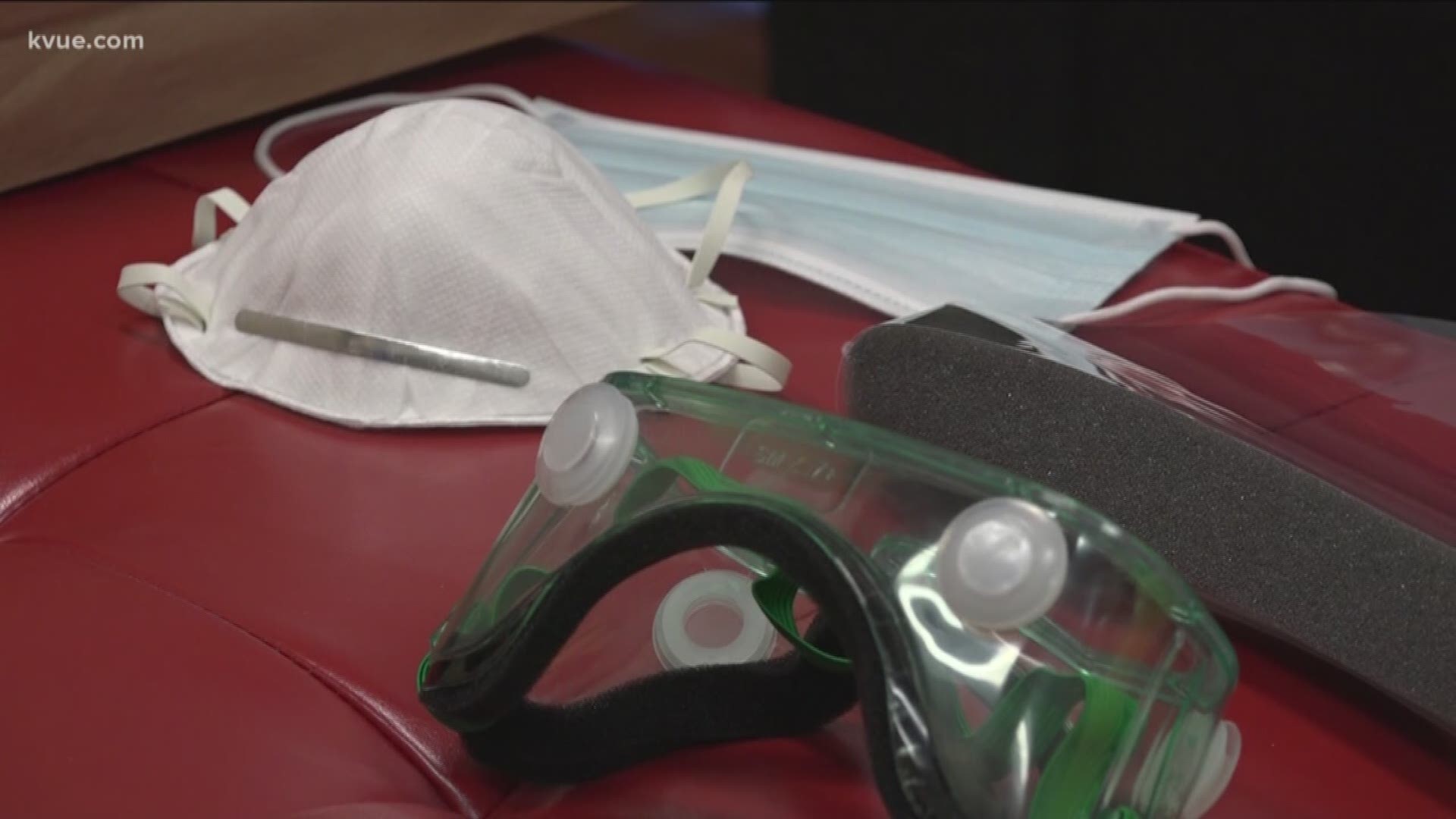AUSTIN, Texas — Around the country, people are making homemade masks for medical professionals. But the CDC says these masks are not considered personal protective equipment (PPE) and, therefore, are a last resort for doctors and nurses caring for a patient.
"We really don’t know what the filtration characteristics are of homemade materials," said Dr. John Abikhaled, the president of the Travis County Medical Society (TCMS). "Certainly, people can be using different types of cloths, constructing them in different ways that may or may not fit very well.”
TCMS announced last week they are accepting donations of masks and other protective equipment. According to Dr. Abikhaled, people have been bringing homemade equipment like masks regularly, but TCMS doesn't know what to do with them.
RELATED:
"The question about homemade materials is: it sounds like a great idea, but perhaps it can be very helpful but we just don’t know because those things have not been studied," Dr. Abikhaled said.
Austin Regional Clinic is also accepting donations of PPE, but in a statement said they are not using homemade equipment:
"We appreciate the community coming together to help healthcare workers. At this time we are still using our surgical masks and N95s as they are significantly more effective (at least 5-25 times) in blocking transmission than homemade masks. Our hope is that anyone who has N95, P95, or surgical masks, proven to prevent infectious disease spread, will donate them to their local hospital or clinic. Homemade masks can be used in the home if there is a family member who is ill and there are no surgical masks available. A homemade mask should be considered as a last resort as it is better than no protection. Meanwhile, everyone can help by staying home, washing their hands often and restricting all in-person interactions. Individual actions can help change the curve."
The CDC updated its website as more and more people around the country offered up their sewing services to make masks.
"In settings where facemasks are not available, [health care personnel] might use homemade masks (e.g., bandana, scarf) for care of patients with COVID-19 as a last resort," the website said. "However, homemade masks are not considered PPE since their capability to protect HCP is unknown. Caution should be exercised when considering this option. Homemade masks should ideally be used in combination with a face shield that covers the entire front (that extends to the chin or below) and sides of the face."
Two women in the Lakeway area came up with an idea to provide covers that fit on N95 masks to, hopefully, prolong each mask's use.
“We’re hoping these covers provide a little bit of a barrier, let those masks last a little bit longer," Jennifer Ozuna said.
Ozuna, along with Sudha Pradeep, created a group that has dozens of volunteers to help make the covers for the medical professional masks. The group makes the covers only for medical providers that request them. Ozuna and Pradeep said they've already received requests for more than 600 masks.
“We’re also trying to be very particular – sanitizing everything they do and being honest and not participate if they’re sick or if they’ve come in contact with a sniffle or an allergy or anything because of where it’s going," Pradeep said.
According to Dr. Abikhaled, that just might work.
“It does make intuitive sense to cover an N95 mask, for example, and protect it from getting wet with something you can then launder, it may prolong the life of it," Dr. Abikhaled said. “One thing you have to think about is how well the cover fits over the N95.”
If you would like to volunteer to make the covers, Ozuna and Pradeep helped create a Facebook group as well as a volunteer form on Google. If you are a medical provider who would like to order a mask cover, you can do so here.
MORE CORONAVIRUS COVERAGE:
- This Austin funeral home is streaming funerals to adhere to social distancing rules
- Coronavirus updates in Central Texas: Austin-Travis County shelter-in-place order to be issued Tuesday; Austin reaches 86 cases
- LIST: Confirmed Central Texas coronavirus cases by county
- Austin coronavirus cases reach 86
- Gov. Greg Abbott: Statewide shelter in place 'not appropriate' at this time
- Austin homes light up with Christmas decor to spread cheer amid coronavirus outbreak
- Austin businessman diagnosed with coronavirus talks publicly
- List: 100 things to do while stuck at home social distancing
- Tito’s Handmade ... hand sanitizer? Distillery looking to produce and give to those in need

